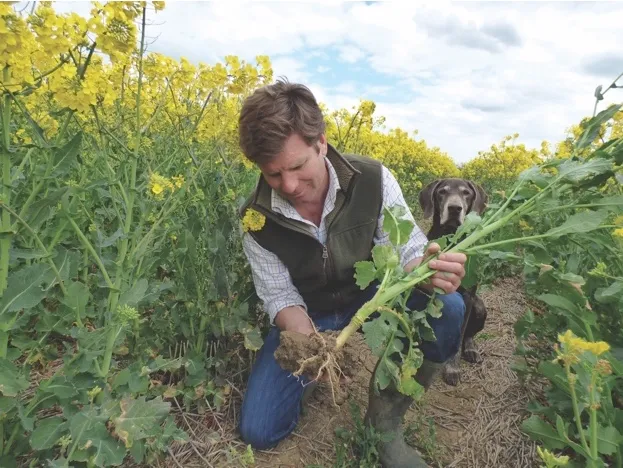What do you farm?
A mix of wheat, rapeseed, fava beans and barley on 280ha in Northamptonshire.
How do you care for wildlife on your farm?
Rather than putting more pesticides or herbicides on our crops, we use other methods to improve the soil and increase yields. We sow winter cover crops, especially legumes, which fix nitrogen and boost microflora and fauna in the soil, and use companion plants to attract pollinators.

Duncan Farrington examines the roots of a rapeseed plant © Farrington Oils
Do you use pesticides?
Yes, but sparingly. On rapeseed, for example, now that we can no longer use neonicotinoids, we do have to spray if there is a flea beetle infestation. In this situation, we go early in the morning or late evening when it’s colder and bees are unlikely to be around.
Would you use neonics?
No, though I have done and thought they were fantastic in many ways because they were highly targeted at the pest insect. But research has shown they persist in the environment more than originally realised.
What if the ban ended?
No, I think we have to be cleverer about how we farm, instead. For example, I think we’ve created the flea beetle problem by growing too much rapeseed, so on our farm, we’ve reduced it to just 10 per cent of our output.
Why grow rapeseed?
It’s been a fantastic commercial product for us over the years. We coldpress the crop on our farm and sell our ‘Mellow Yellow’ brand of oil to major supermarkets. It’s very hard to make money farming, and I have to make this business both economically and environmentally sustainable.
What else do you do?
I’ve planted trees and hedges and farmed under Environmental Stewardship for years.

